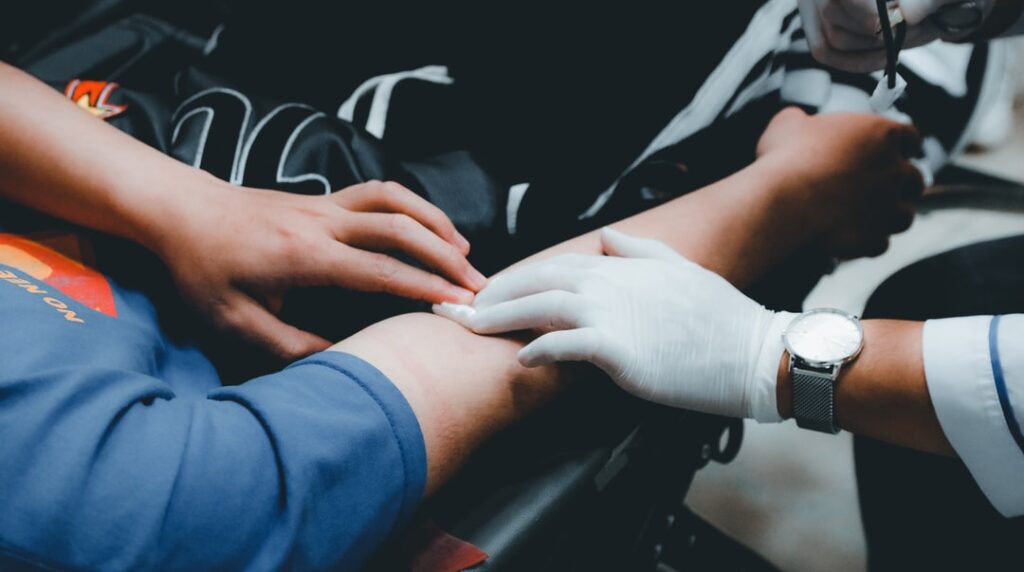Did you know that the term phlebotomy refers to the venipuncture of blood? This could be for transfusion, diagnostic testing, or experimental treatments.
A phlebotomy technician is in charge of collecting blood specimens for the laboratory. This aids in the diagnosis of health issues and illnesses. But they are also responsible for doing a lot of other tasks!
Are you interested in finding out the average phlebotomy technician salary in Pennsylvania? To learn more about what a phlebotomy tech is and what they do, continue reading.
What Is a Phlebotomy Technician?
A phlebotomy technician and a phlebotomist are both job titles for the same profession. They collect blood from patients, maintain lab equipment, and ship samples as needed.
The phlebotomist is an essential element of the clinical laboratory team. His or her primary role is to draw blood specimens from patients. This is done via venipuncture and micro-collection for testing.
Phlebotomists work in a variety of settings, including hospitals and community health centers. They may also work in medical group offices, public health institutions, and veteran hospitals.
With the hazards of infectious illnesses, the demand for phlebotomy techs has expanded.
What Does a Phlebotomy Technician Do?
Phlebotomy techs take blood samples from patients. They then prepare the samples for examination. The majority work in hospitals and clinics, although some collect blood for donation.
Phlebotomy technicians are key members of the healthcare team. This is because they need to explain the blood-drawing technique to patients and put them at ease.
Phlebotomy technicians are in charge of extracting blood samples. They must also prepare the samples for examination. Typical tasks and responsibilities include:
- Explanations of procedures
- Assisting patients who are afraid of needles
- Taking measurements of blood pressure, pulse, and breathing
- Applying bandages
- Sending blood, urine, or feces to a laboratory for testing
- Cleaning workspaces and sterilizing equipment
- Updating medical records for patients
With medical technology continually improving, phlebotomy technicians need to know the differences between blood test types and how medications and nutrition affect blood samples. As you can see, phlebotomy technicians do a lot!
Phlebotomy Technician Salary In Pennsylvania
Phlebotomy technicians in Pennsylvania may expect to earn a median salary of $37,380.
Phlebotomy is a growing discipline with numerous job options. The Bureau of Labor Statistics predicts that the employment of phlebotomist technicians will expand.
Because blood testing is such an important part of health care, the demand for phlebotomy technicians will rise. This is because doctors must use blood work for analysis and diagnosis.
Some phlebotomy technicians opt to become phlebotomy specialists or donor phlebotomy technicians. They do this by becoming certified in a specific area. Others go on to become medical lab technicians, medical assistants, or registered nurses!
Phlebotomy Technician Work Environment
Clinical laboratories, hospitals, doctor’s offices, clinics, blood donation centers, nursing homes, and other places employ phlebotomists. A phlebotomy technician can work anywhere where blood is extracted.
Hospitals, medical labs, and blood donation centers all employ phlebotomy technicians. They can work day, evening, or night shifts, as well as weekends and holidays.
They spend the majority of their time on their feet. They are always engaging with patients or processing samples for lab testing. This means that you need to be passionate and high-energy.
Should I Become a Phlebotomist?
If you want to help doctors solve medical mysteries, phlebotomy is the perfect career for you.
Phlebotomy technicians have the freedom to work where and how they want. This isn’t something that many jobs provide!
Phlebotomy can also lead to new chances in the medical profession. That’s why it’s great for those looking to advance their careers. So, yes! You should become a phlebotomy tech!
How to Become a Phlebotomy Technician
Phlebotomy techs must have fine motor skills. This is due to the precise process of placing needles into difficult-to-find veins. They must be able to deal with challenging and emotional patients.
Finally, they must be detail-oriented and able to recall safety measures. They must also know how different diets can impact blood samples. They need to know how samples must be processed in order to be properly tested.
A high school diploma as well as a phlebotomy technician training program are required to become a phlebotomy technician. These programs might last anything from a few months to a year.
Depending on which organization certifies the phlebotomy technician, the certification process may differ.
Although the training and instruction you get may be difficult, we provide you with the skills and support you need to succeed. Hands-on patient care in the presence of bodily fluids and disease is required for a phlebotomy vocation.
For those who have difficulty with blood or disease, phlebotomy may be more difficult than other employment options.
Do You Want to Become a Phlebotomy Tech?
Phlebotomy technicians play an important part in medical diagnosis. The position provides an excellent starting point in the healthcare field. Now that you’re aware of the average phlebotomy technician salary in Pennsylvania, you can decide if the career is right for you.
Phlebotomy training is a stepping stone in the careers of many healthcare practitioners. Are you ready to start your medical career? Click here to learn more about our online phlebotomy courses!
Students can learn at their own speed in our 100 percent online program. The program includes all of the elements required to pass the certification tests. It also provides students with the knowledge to help them succeed in their jobs.

Nancy L. Kimmel obtained her PhD in Environmental Engineering in 2002, then went on to teach Physics and Mechanical Engineering at Lawrence Technological University, Henry Ford College and Oakland University. She obtained her Associate in Nursing from Henry Ford College and then went on to earn her Master Degree as a Family Nurse Practitioner and became Board Certified working as a licensed FNP in the State of Michigan. She then went on to Medical School where she is now in her 3rd year, and is also in the process of obtaining her Doctorate in Nursing Practice through Chamberlin University. She has authored the NET Study Guide, as well a several books on subjects of Math, ECG/EKG and Phlebotomy. She holds a patent on an Air Filter through the U.S. Patent Office.


